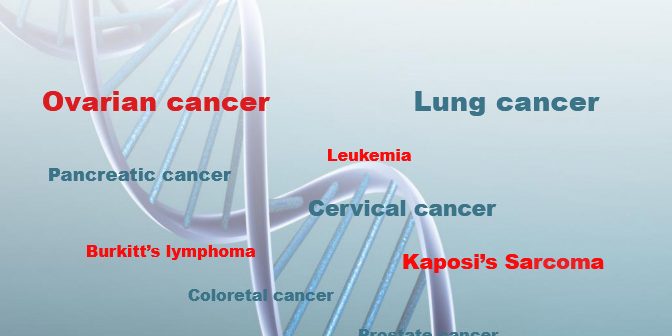Doctors treating cancer patients at the Uganda Cancer Institute (UCI) have expressed concern over the high number of patients using herbal medicine concurrently with their prescribed conventional medicine or chemotherapy.
The doctors who were sharing experiences in how to efficiently handle the different kinds of patients noted that many patients will not reveal that they are actually taking herbal medicines which in the end affects their treatment outcomes.
Dr. John Black Kabukye says up to 70% of the patients they are seeing have used or are still using herbal or alternative medicines that is of recent coming in different forms like tablets and syrups making it hard for them to tell what effects that would have on their mainstream medicines.
He notes for instance that patients are using pumpkin seeds for neutropenia, a condition where one have lower than normal levels of a type of white blood cells called neutrophils.
While this works for them, he is worried about the likely drug- food contraindications since they are not tested for efficacy.
On his part, Senior Oncologist Dr. Fred Okuku who presented a talk on dealing with a difficult cancer patient said it’s difficult for them to ensure that patients completely stay away from alternative medicine and called for developing such medicine and taking them through proper channels to check their safety.
He notes that with the effectiveness of pumpkin, they are pushing to have this studied and documented.
Apart from patients that are stuck with herbal medicine, Okuku says the institute sees wide categories of patients whose treatment requirements differ including the poor patient, the angry patient, the wiser patient, the self-distractive patient, rich patient, the give me patient and the very sick patient in pain among others.
Every day, the institute sees an average of 200 patients which is an overwhelmingly high figure considering that the facility operates with less than 30 oncologists who are trained on how to specifically handle cancer patients.
Even as they work with physicians, clinical officers and nurses that help them deliver care. Doctors attending the meeting shared experiences of dealing with some difficult patients who due to religious and cultural beliefs refuse some treatments such as those that involve blood transfusion which would really change their treatment outcomes but sometimes succumb unnecessarily.
Okuku urged health workers to never be confrontational with patients since apart from the debilitating disease, they are dealing with a number of other challenges including financial break down.
Elsewhere, he says because of its nature, cancer treatment is done in consultation and involvement of all family members of a patient. But, he says, some patients wrongly request to hide their diagnosis from their family.



